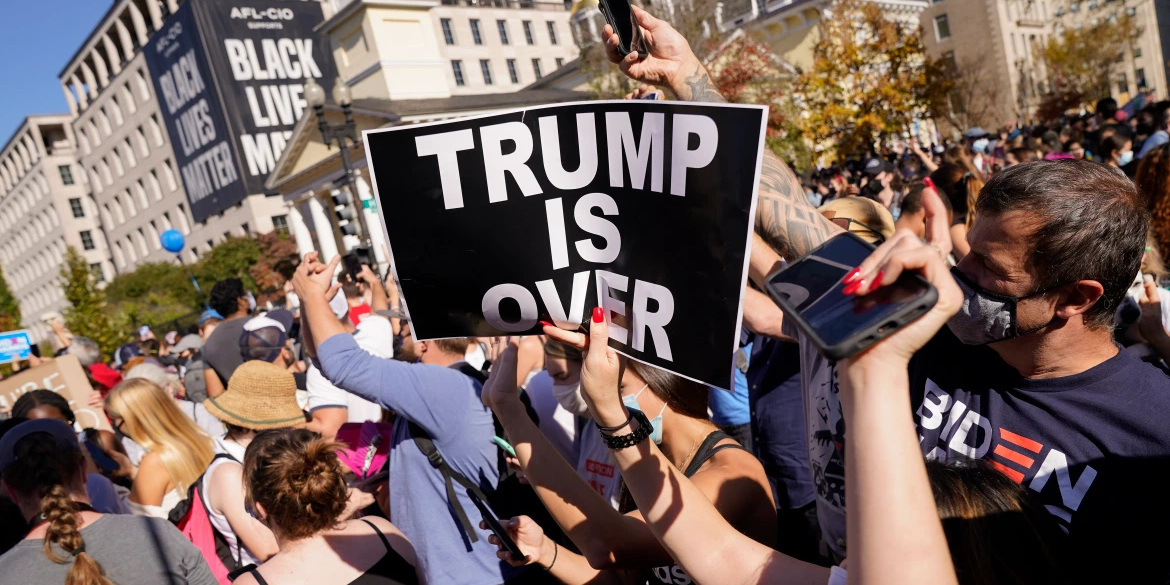“At least he was targeting immigrants,” my uncle said in reference to the television screen. We were in his secluded cabin in the dense Idaho mountains. Above the flashing “BREAKING NEWS” banner about the recent El Paso mass shooting, a news anchor spoke of the gunman’s clear anti-immigrant sentiments, which my family openly agreed with. I shrank deeper into the couch and felt my face get red.
These remarks reminded me a lot of Donald Trump’s openly controversial statements. In fact, since Trump first became president, it appears hidden sentiments, whether it pertains to racism, homophobia, or xenophobia, have been awakened. Within my own family, who mainly live in suburban Idaho, I’ve noticed that ever since Trump was elected president they don’t even try to conceal their prejudiced beliefs, even if they offend me.
A friend of mine named Emily Zenner ‘24 who, like me, leans left of the political spectrum, also has to deal with having many right-leaning family members. Amidst Trump’s rise to political infamy, Zenner’s own family has also become “more polarized, more unwilling to hear other sides’ opinions, and much more distrusting of our government.”
The rise of these overt statements is not just unique to our families. Vocal and physical hate crimes have risen dramatically over the last four years throughout the entire country. According to the Federal Bureau of Investigation’s 2018 Hate Crime Statistics Report, the United States has seen more violence against individuals prompted by prejudice or bias than any other time in the last sixteen years. It appears a seemingly subtle aspect of American society—our inclination to recognize when our beliefs or actions may be grounded less in logic and more in biased judgements—has seen a profound shift.
Donald Trump is certainly a contributing factor. His authority didn’t cause more people to suddenly become prejudiced, rather his candid voicing of his own sentiments made people more willing to use their own voice. When you have the president of the United States making racially charged statements to the American people, anyone watching with an inkling of prejudice is going to feel like it’s acceptable to make such statements within their own communities.
So clearly division has become ingrained in American politics, but has manifested itself in two distinct ways. Those, with the aid of Trump’s public demeanor, who openly embrace their prejudice, and those, who surprisingly also with the aid of Trump, have established a new era of activism spearheading social movements.
President-elect Joe Biden isn’t shy from controversies of his own either. For instance, in 1996 he voted in favor of the Defense of Marriage Act, which defined marriage as exclusively between a man and a woman and did not allow states to recognize same-sex marriage. But his public refined and relaxed demeanor is unlike Donald Trump’s front of relatability. And his tenure under the Obama Administration was generally thought to make him the most appealing candidate for the Democratic ticket, and it did work to some degree. Through his political past, Biden was able to garner support from skeptical, one-time Trump voters looking for a way out. Though some voters were given permission to be outrightly bigoted, some could actually recognize how wrong that was. But this rise in blatant racism, as previously stated under the aid of Trump’s incessant espousal of hate-filled rhetoric, has simultaneously laid the pavements to an unprecedented social movement.
The 2017 Women’s March on Washington, which was unquestionably partly a reaction to Donald Trump’s contested election, shows we can’t lose hope just yet. Over the course of Trump’s election campaign, during which he built support from his frequent surprising and charged statements, many were also motivated to fight against the hate; the culmination of which, in my opinion, was seen to be the march. According to the Huffington Post, the march, which happened to be the day after Trump’s inauguration, garnered nationwide attendance, totalling somewhere between three and five million Americans. This means nearly one in every 100 people residing in the United States participated. These, typically younger (Gen Z and Millennial) individuals have been fueled by Trump’s rhetoric—opting to instead tangibly change the state of the nation through protests and social media outreach.
For the new wave of activists, Biden is merely palatable; he might band-aid our problems but probably won’t truly work to create social change. These same activists have been galvanized to action, and they’re not just anti-Trump, they’re against the circumstances that led to his election and what his time in office has illuminated about the gross injustices prevalent in American society at large. It’s also hard to imagine the reawakened pro-Trump populace, who have now fully embraced their bigotedness and stroll around with pride, ever returning to their pre-Trump states. It is for this reason that Biden’s win won’t do much for curbing our division. The separation, partly motivated by Trump, has simply permeated our society beyond reconciliation. And what if that’s a good thing? After all, Biden might not secure all our goals of bettering our country, but he could further encourage the activist movement to stay persistent in their goals. We really have to believe this if we expect change.

